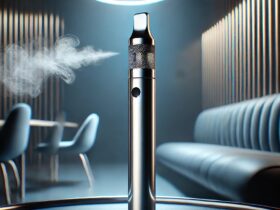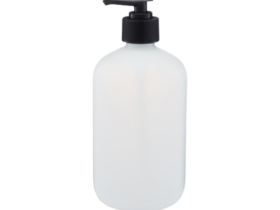Introduction
Sinusitis is a common medical condition that affects many residents in New Jersey. While it can be an uncomfortable and sometimes painful experience, understanding the causes, symptoms, and treatment options available is essential. In this article, we will delve into the specifics of sinusitis in New Jersey, offering insights into how to recognize its symptoms, where to seek treatment, and how to prevent it.
Recognizing the Symptoms of Sinusitis
Sinusitis, commonly known as a sinus infection, is characterized by the inflammation of the sinuses, which are small cavities in the skull filled with air. This condition can be acute or chronic, and its symptoms often mimic those of the common cold. Here are some common symptoms to watch for:
- Nasal Congestion: If you find it difficult to breathe through your nose due to a blocked or stuffy feeling, it might be a sign of sinusitis.
- Pain or Pressure: Many individuals with sinusitis experience pain or pressure in the face, particularly around the eyes, cheeks, and forehead.
- Runny or Discolored Nose: Sinusitis often leads to a runny nose, sometimes accompanied by thick, discolored mucus.
- Coughing: A persistent cough, especially at night, can be linked to postnasal drip caused by sinusitis.
- Fatigue: Sinusitis can leave you feeling tired and drained, affecting your overall well-being.
If you are experiencing these symptoms, it’s crucial to consult a healthcare professional in New Jersey for a proper diagnosis.
Seeking Treatment in New Jersey
New Jersey offers a range of medical facilities and healthcare providers who can help you manage sinusitis effectively. When you visit a healthcare provider, they will assess your condition and may recommend the following treatment options:
- Medication: In many cases, sinusitis can be managed with over-the-counter or prescription medications, such as decongestants, antihistamines, or antibiotics, depending on the cause of the infection.
- Nasal Irrigation: Nasal irrigation, often using a saline solution, can help clear mucus and reduce symptoms.
- Surgery: In severe cases of chronic sinusitis, surgery may be necessary to remove blockages and improve sinus drainage.
- Allergy Management: If allergies are contributing to your sinusitis, allergen avoidance and allergy treatments may be recommended.
- Home Remedies: Alongside medical treatment, you can also try home remedies like steam inhalation, warm compresses, and staying hydrated to alleviate symptoms.
Preventing Sinusitis in New Jersey
Preventing sinusitis can be challenging, but some measures can help reduce your risk:
- Hand Hygiene: Regular handwashing can help prevent the spread of viruses and bacteria that can cause sinusitis.
- Allergen Management: If you have allergies, minimizing exposure to allergens can reduce your risk of sinusitis.
- Stay Hydrated: Drinking plenty of fluids keeps your nasal passages moist and helps prevent blockages.
- Quit Smoking: Smoking can irritate and inflame your sinus passages, so quitting can significantly reduce your risk.
- Vaccinations: Influenza and pneumonia vaccinations can prevent some respiratory infections that might lead to sinusitis.
Conclusion
Sinusitis is a common issue faced by many in New Jersey, but understanding its symptoms and seeking appropriate treatment can make a significant difference in your quality of life. New Jersey residents have access to a variety of healthcare options and professionals who can help manage and treat sinusitis effectively. By recognizing the symptoms, seeking timely treatment, and taking preventive measures, you can maintain better sinus health and enjoy life in the Garden State to the fullest.














